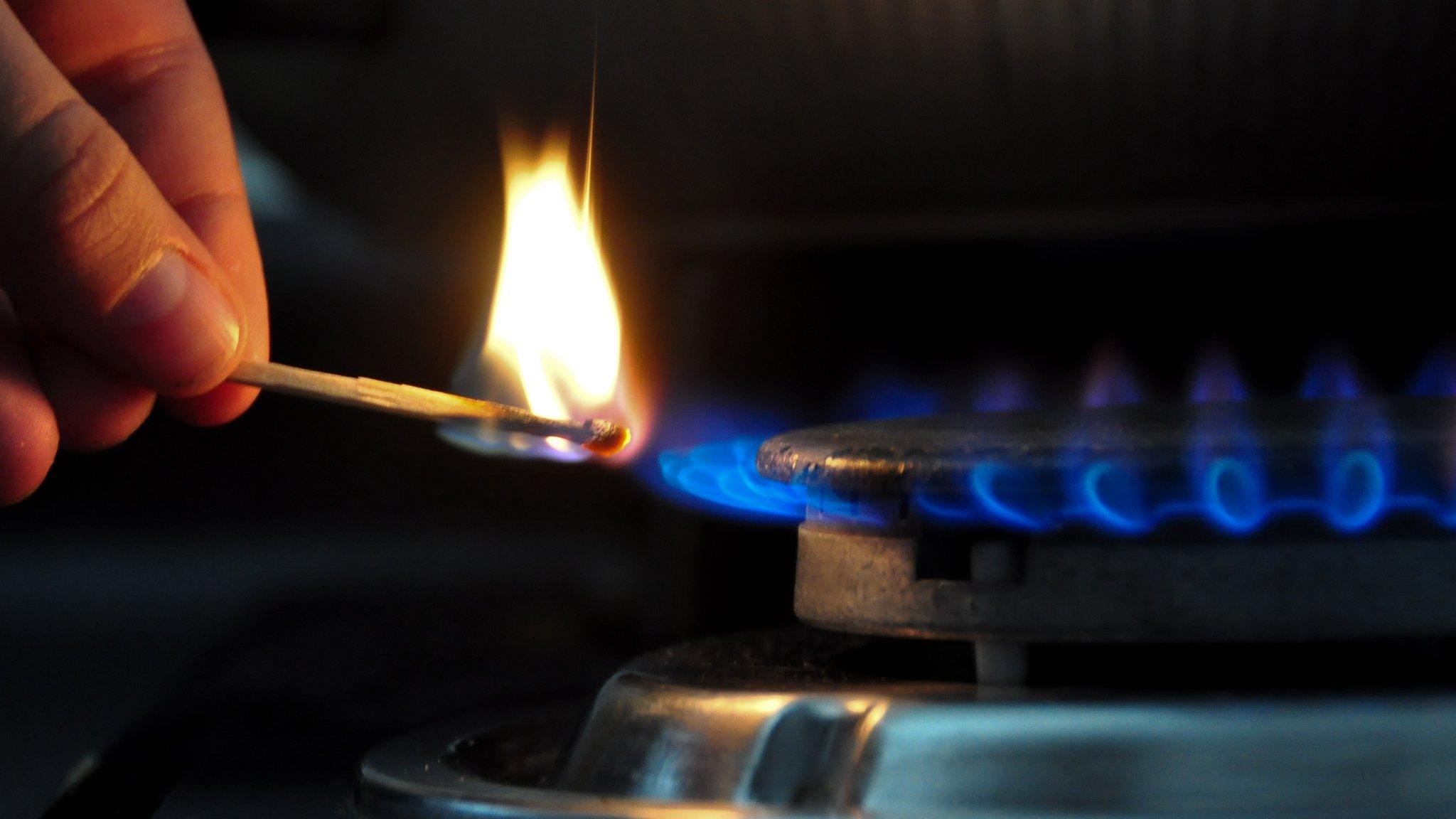Energy bills: Inertia the big enemy
- Published

The customer discontent over energy bills has rumbled on for years.
It reached fever pitch in 2013 and Ed Miliband sought to gain political favour by promising to freeze energy bills or even break up some of the biggest players.
After countless Ofgem probes, the issue of stubbornly high prices was referred to a body with real teeth, the Competition and Markets Authority, and this morning, after two years of inquiry, they bared them.
The question is, how sharp are they?
Inertia issue
One of our biggest enemies as energy customers, it could be argued, is ourselves. Inertia - the disinclination to switch - costs customers well over £1bn a year.
About 70% of all customers are on their supplier's standard tariff and, if they were to move, the CMA estimates they could save £300 to £400 a year.
To prod us into action, the CMA proposes setting up an Ofgem-controlled database, which will keep details on which customers have been on which tariffs for how long.
Customers who have been on a standard tariff for three years will have their details made available to competitors, who can then offer you a better deal.
If you don't switch, you may regret it if you are bombarded with marketing materials from other suppliers. The detail of this will be examined closely to see whether there are data protection issues that arise.
Market failure?
Some people find it much harder to switch - those on pre-payment meters or those in debt to their existing suppliers. Here we WILL see price controls: namely, a transitional price cap for four million customers until 2020.
The existence of price controls in a market that was deregulated 20 years ago will be seen by some as evidence of failure of that market.
Ofgem tried to make life simpler for customers, reducing the bewildering array of tariffs to just four per supplier.
That didn't work, according to the CMA. It reduced innovation and so out it goes.
So we will be back to needing a degree to sift through hundreds of different offers. We will see, but it's possibly good news for the comparison websites.
Wrangling ahead
There are other proposals, including one potential can of worms.
The CMA wants to ensure that government support for low-carbon technologies which is passed through to customers - the "green" bits of the bill - should be assessed for impact on customers beforehand.
That sounds like a recipe for a lot of political and environmental wrangling about which technologies get supported and to what extent.
So what do the energy companies make of this?
They have been slow to respond and, to be fair, we have only seen the executive summary.
The full 1,000-page report drops on their desks next week. That is a lot to work through.
The report is not as radical as some would have liked. The consumer group Which? said: "There is still a long way to go before we will have an energy market that works for all consumers."
But if the proposals get more of us to switch, while protecting more vulnerable customers, they will make some dent in the £1.7bn we overpay each year.
- Published10 March 2016
